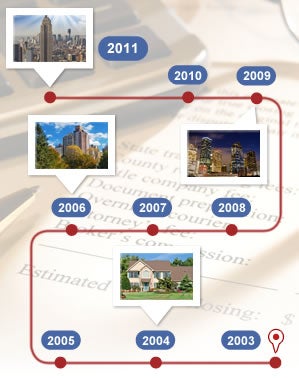Typical Closing Costs
Real property in most jurisdictions is conveyed from the seller to the buyer through a real estate contract. The point in time at which the contract is actually executed and the title to the property is conveyed to the buyer is known as the "closing". It is common for a variety of costs associated with the transaction (above and beyond the price of the property itself) to be incurred by either the buyer or the seller. These costs are typically paid at the closing, and are known as closing costs. Examples of typical closing costs might include: Attorney (Lawyer) Fees, paid by either or both parties, for the preparation and recording of official documents. The principals and/or lender may each be represented by their own attorney. Typically required by institutional/commercial lenders to ensure documents are prepared correctly. Title Service Cost(s), paid by either party according to the contract but by default seller may pay the majority, for title search, title insurance, and possibly other title services. In some cases the attorney may do the title search or the title service and attorney fees may be combined. Required by institutional/commercial lenders and often by the real estate contract.Recording Fees, paid by either party, charged by a governmental entity for entering an official record of the change of ownership of the property. Required by the government for recording the deed., Document or Transaction Stamps or Taxes, paid by either or both parties depending on location (area of jurisdiction), charged by a governmental entity as an excise tax upon the transaction. Required by law.








No comments:
Post a Comment